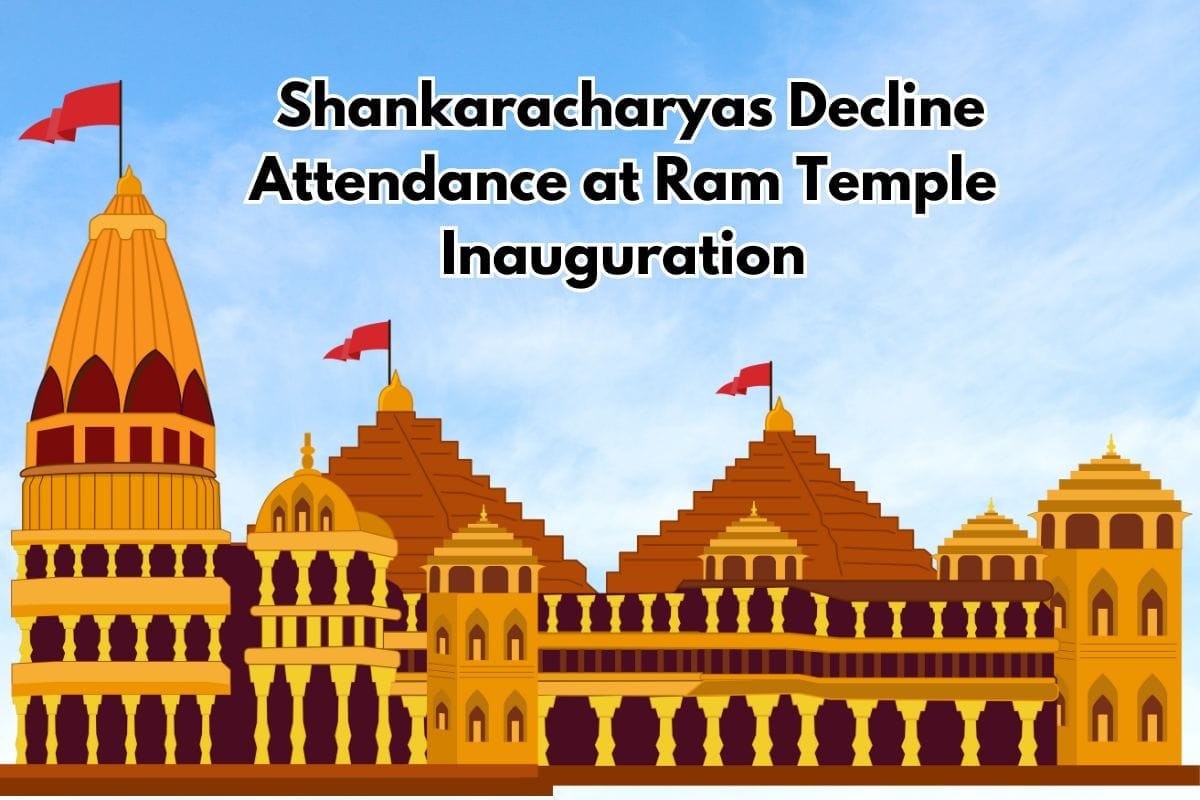
The four shankaracharyas, leaders of Hindu monastic institutions established by Adi Shankara, have opted not to participate in the inauguration of the Ram temple in Ayodhya on January 22. The heads oversee mathas in Dwarka, Joshimath, Puri, and Sringeri, adding significance to their absence considering their esteemed positions.
Protest by Matha Heads
The shankaracharya from Puri publicly questioned his role, pondering whether he should merely “stand and clap” as Prime Minister Modi inaugurates the temple and interacts with the idol. Other seers have refrained from disclosing reasons for their decision to skip this noteworthy event. Their stances indicate discontent with the organization and their involvement.
Decoding the Shankaracharya Title
Shankaracharya translates to the “teacher of Shankara’s way.” This title designates the leaders of four Hindu monastic establishments, supposedly founded by the philosopher Adi Shankara in the 8th century CE. They propagate his teachings and belong to a lineage traced back to him.
Questionable Historical Lineage
Scant evidence suggests the existence of these four mathas before the 14th century CE when the Vijayanagara kingdom began supporting the Sringeri matha. The extended tenures of previous leaders hint at a retrospective creation of the lineage for legitimacy and stature.
Preserving Tradition Through Mathas
Presently, these intricate matha organizations encompass temples, libraries, and residences dedicated to sustaining Shankara’s philosophical tradition. They serve as significant centers of spiritual knowledge.
Background of Adi Shankara
According to legends, Shankara was born in Kerala, and an incident with a crocodile spurred him to become an ascetic. His hagiographies depict him as a wandering scholar engaging in philosophical debates and establishing mathas across India until his demise at around the age of 32.
Association with Advaita Vedanta
Shankara solidified Advaita Vedanta, a radical nondual Hindu philosophy asserting that the empirical world is illusory, with brahman as the sole true reality. His theories systematically conveyed nonduality as a path to liberation.
Enduring Multifaceted Legacy
Beyond his philosophical contributions, Shankara’s legacy encompasses a near-nationalistic vision, with his mathas uniting a Hindu India transcending geographical and political divisions. As custodians of faith occupying corners of India, the heads of these mathas carry profound symbolic significance.








Leave a Reply